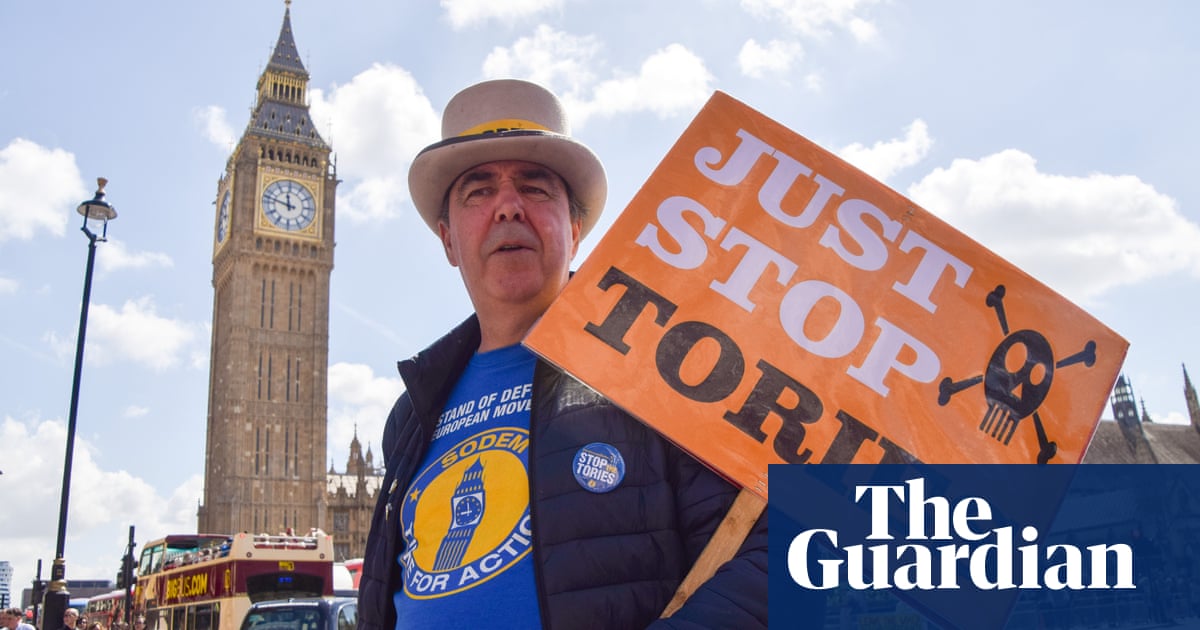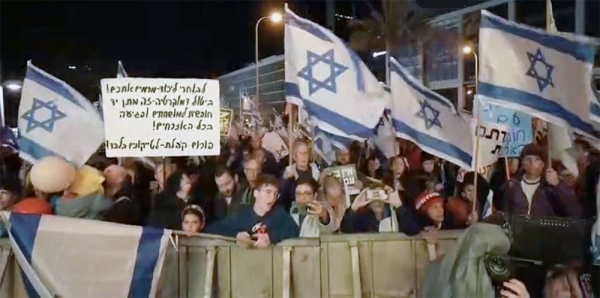
The anti-Brexit campaigner Steve Bray has said he will not be deterred from his longstanding protest outside parliament as ministers were accused of an unprecedented attempt to restrict repetitive demonstrations.
The government is seeking to use so-called Henry VIII powers to allow police to quash protests where a “cumulative” effect can be shown to be having a “more than minor” impact on people’s daily lives.
Under the change, the police would be able to put conditions on protests such as Bray’s, taking into account the duration and content of it. Bray, 53, from Port Talbot, could potentially face arrest if he breached the terms set by police.
The move opens the possibility of an end to Bray’s six years of amplified anti-Brexit protests outside parliament in a development that may be welcomed by many working in the Palace of Westminster but which is a cause of alarm among free speech campaigners.
The attempted law change has been criticised as a “backdoor” attempt to pass legislation that has already been rejected. Last year, the House of Lords voted down the provision of such powers to the police by 254 votes to 240 after ministers sought to bring them in through amendments to an act of parliament.
The subsequent effort this month at securing the same outcome through a statutory instrument, which the Lords does not traditionally vote down, has prompted both the advocacy group Liberty and a Lords committee to raise concerns about a potential abuse of power.
Jun Pang, from Liberty, said it was a “particularly egregious” move by the government. “It is the first time it has happened, offering the least possible scrutiny for something that been rejected already,” she said. “It is a blatant attempt restrict the right to freedom of expression.”
In a report published on 11 May, the House of Lords secondary legislation scrutiny committee wrote: “The Home Office has not provided any reasons for bringing the measures back in the form of secondary legislation, which is subject to less scrutiny, so soon after they were rejected in primary legislation. We are not aware of any examples of this approach being taken in the past.”
Ministers have already introduced new powers through the Police, Crime, Sentencing and Courts Act to enable police to put conditions on single-person protests in order “to prevent disruption”.
The new statutory instrument would set a lower bar for police to meet should they wish to block Bray from protesting at his favoured spot on a traffic island near Portcullis House, a part of the parliamentary estate from where he has been able to target MPs with music and chanting.
The statutory instrument would in effect redefine the “serious disruption to the life of the community” threshold that the police need to meet in order to set conditions on a protest.
Bray said he would not allow the government to restrict his right to free expression.
“I won’t be put off for a minute,” he said. “We have a right to protest, a basic human right. To take that away is to lead us down the path of fascism and that is not what the United Kingdom is about. The Tory government is constantly chipping away at our rights. And since leaving the European Union it seems to have given them a free rein.”
A Home Office spokesperson said: “The right to protest is a fundamental principle of our democracy, but we will not tolerate tactics that cause misery to people going about their day-to-day lives.
“The Police, Crime, Sentencing and Courts Act improves the balance between the right to protest and the rights of others to go about their business.”












